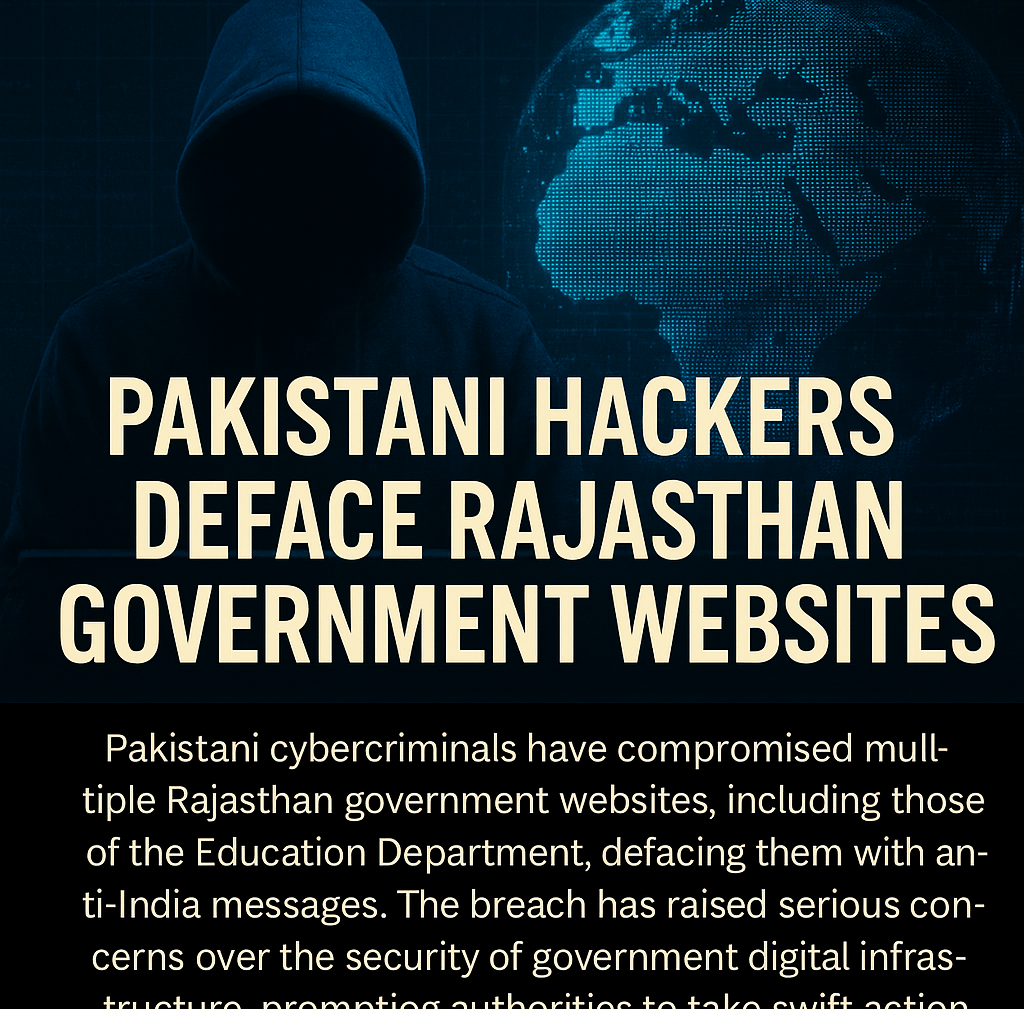Rising Cyber Threats: Pakistani Hackers Deface Rajasthan Government Websites
Multiple Rajasthan government websites, including key departments like Education, were recently defaced by Pakistani hackers displaying anti-India messages. This alarming breach underscores the urgent need to bolster cybersecurity in public digital infrastructure. As India advances digitally, so do the threats we face. Let this be a wake-up call for all public and private institutions to prioritise cyber resilience, conduct regular audits, and ensure incident response readiness.
Shivam Dharpure
5/1/20251 min read


In a concerning development that highlights the growing vulnerabilities in digital governance, several official websites belonging to the Rajasthan government were defaced by Pakistani cybercriminals. The affected sites include key departments such as the Education Department, among others, and displayed provocative anti-India content upon being compromised. This cyberattack appears to be an act of digital defiance and disruption, likely connected to recent geopolitical tensions, including the Pahalgam terrorist attack. The timing and nature of this breach suggest a deliberate attempt to undermine India’s digital infrastructure and create panic in the online space.
What Happened?
Hackers reportedly targeted and successfully accessed multiple Rajasthan government websites, replacing homepages with pro-Pakistan propaganda and anti-India messages. The visual defacement remained live until authorities detected the breach and began remediation efforts.
Immediate Response
Upon discovery, the Rajasthan government’s IT team initiated emergency protocols to contain the breach and begin restoring affected websites. An official investigation has been launched to identify the perpetrators, and security measures across state-run digital platforms are being reviewed and upgraded.
Why This Matters
This incident is more than just digital vandalism. It is a form of cyberwarfare that exposes the critical need for stronger cybersecurity frameworks in public infrastructure. In an era where essential services, public records, and government communications are hosted online, even a short-lived breach can have wide-reaching implications for trust, data integrity, and national security.
Lessons and Way Forward
Proactive Cyber Defence: Government departments must adopt proactive cybersecurity policies and simulate breach scenarios to test their defences regularly.
Awareness and Training: Public sector employees should receive regular training to recognise phishing, social engineering, and other cyber threats.
Upgraded Infrastructure: Legacy systems are more vulnerable. Migrating to secure, modern platforms is essential.
Collaborative Action: Cybersecurity must be a shared responsibility among central and state agencies, with coordinated response strategies.
Final Thoughts
The defacement of Rajasthan government websites is a stark reminder that the digital battleground is very real—and growing. India must respond reactively and proactively by investing in robust cybersecurity infrastructure, skilled personnel, and international cooperation to combat cybercrime.
